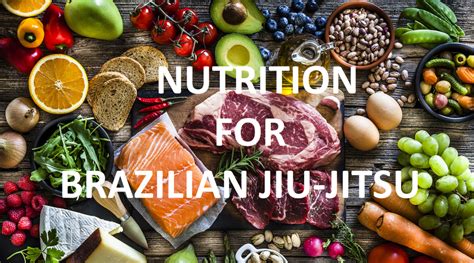
Fueling the Roll: A BJJ Athlete’s Guide to Eating Healthy
~Train hard. Recover smarter. Eat like a champion.~
-Roll Gear LLC Team
Essential Nutrients for BJJ Athletes
🥖 Carbohydrates: The Primary Fuel
Brazilian Jiu-Jitsu athletes rely on glycogen — your body's stored form of carbohydrates — to fuel long rolls, drills, and sparring. Without proper carb intake, you’ll fatigue faster and recover slower.
“Athletes must be sure to take in enough carbohydrates to fuel and recover from their training and performance” (Lupine Publishers, 2022).
Recommended carb sources:
Brown rice
Oats
Sweet potatoes
Whole grain bread
Bananas
Quinoa
💬 “Before competition, I load up on complex carbs like oatmeal and sweet potatoes. They give me lasting energy without making me feel heavy.” — Lucas Barbosa, BJJ World Champion
🥚 Protein: Muscle Repair & Recovery
Protein is critical for rebuilding muscle tissue and recovering from the grind of daily rolls. But balance matters — too much protein can crowd out other essential nutrients.
“Overconsumption can displace other nutrient-dense foods, leading to deficiencies in fiber, vitamins, and minerals” (EatingWell, 2025).
Recommended protein sources:
Eggs
Chicken breast
Greek yogurt
Tofu
Lentils
Fish
💬 “I always add a protein shake after training. Quick recovery is key to staying on the mat every day.” — Mikey Musumeci, IBJJF World Champion
🥑 Fats: Fuel for Hormones and Recovery
Don’t fear fat — healthy fats are necessary for hormone production, brain function, and long-term energy.
“Proper fat intake ensures proper cellular and central nervous system health” (Lupine Publishers, 2022).
Recommended healthy fats:
Avocados
Olive oil
Walnuts
Flax seeds
Salmon
💬 “BJJ athletes should never fear fat — it’s about quality. Omega-3s help reduce inflammation and soreness.” — Dr. Amanda Reiter, RDN
🥗 Meal Planning for Optimal Performance
Here’s an example of a balanced day of eating that fuels training and recovery:
Breakfast
Steel-cut oats with blueberries and chia seeds
2 hard-boiled eggs
Lunch
Grilled chicken
Quinoa
Spinach and avocado salad with olive oil
Dinner
Baked salmon
Sweet potatoes
Steamed broccoli
Snacks
Greek yogurt with honey
Almonds or cashews
Rice cakes with almond butter
📷 You can view a helpful sample plan here:

Image from HeavyBJJ.com
🥤 Juicing vs. Smoothies: Which Is Better?
🍓 Smoothies — Yes ✅
Smoothies are ideal for recovery because they contain fiber, protein, and customizable macros.
“Smoothies provide more nutrients because the vitamin-packed, fibrous pulp and skin hasn't been removed” (Ohio State Medical Center, 2020).
Great smoothie ingredients:
Spinach or kale
Frozen berries
Banana
Almond butter
Whey protein or Greek yogurt
🧃 Juicing — Use Sparingly ⚠️
Juices are fast-digesting and full of vitamins but lack fiber. They're best used pre-training or as a supplement.
“Raw fruit and vegetable juices can supply your body with rich vitamins and nutrients that can maximize your endurance and speed muscle recovery” (World Food and Wine, 2021).
💬 “Use smoothies when possible. They stabilize blood sugar and keep you full longer.” — Jessica Spendlove, Sports Dietitian
🚫 Foods to Avoid
Avoid foods that increase inflammation, impair digestion, or lead to energy crashes.
❌ Ultra-Processed Foods
Fast food
Frozen meals
Packaged snacks
“Ultra-processed foods are associated with increased risk of cancer and cardiometabolic issues” (Wikipedia, 2025).
❌ Sugary Beverages
Soda
Energy drinks
“Sugary carbs such as candy bars or sodas don't contain any of the other nutrients you need” (KidsHealth.org).
❌ Greasy, High-Fat Meals Before Training
“Avoid foods that take your body longer to digest... including foods high in fiber, protein, and fat” (USADA, 2022).
💬 “Eating fast food before training is like fueling a race car with mud.” — Coach Marcos Oliveira, 3rd-Degree Black Belt
🎥 Watch & Learn
📚 References (APA Format)
EatingWell. (2025). Why Eating Too Much Protein Can Be Bad for Your Health, According to Dietitians. Link
Lupine Publishers. (2022). Nutritional Requirements for the Sport of Brazilian Jiu-Jitsu. PDF
Ohio State Medical Center. (2020). Juicing vs. Smoothies: Which Is Better for You? Link
World Food and Wine. (2021). Juicing for Athletes. Link
USADA. (2022). Eat and Avoid Before Training. Link
KidsHealth. (n.d.). A Guide to Eating for Sports. Link
Wikipedia. (2025). Health Effects of Ultra-Processed Foods. Link
